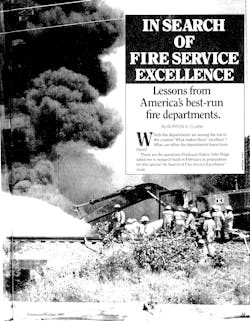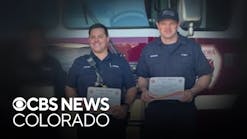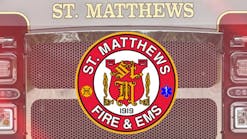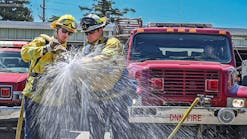40th Anniversary: How Do We Measure the Best in the Fire Service?
According to the October 1985 issue of Firehouse Magazine, the best-run fire departments in America were Seattle, Miami, Los Angeles City and Palm Beach, FL. That conclusion was based on a research project using the best-selling management book by Thomas Peters and Robert Waterman, “In Search of Excellence: Lessons from America’s Best-Run Companies,” as a research methodology. The study identified the 25 top fire departments in the country, then measured their performance to determine the top performers.
I was privileged to be the lead researcher on this first-of-a-kind study, and Firehouse was courageous enough to publish the results. If you have not read the original article, I suggest you do, because it was an attempt to quantitatively (through survey) and qualitatively (through interviews) measure fire service excellence. Read it here.
The challenge still remains: What do we measure to determine if our fire department is doing a good job? Who sets the parameter to measure our success or failure? What role does the public play in the process? How does politics fit into the equation? These will be some of the most important questions for the fire service discipline and larger American fire culture to address in the 21st century.
We are good at having heated debates over strategy and tactics on the fireground, education vs. experience being the best teacher, paid vs. volunteer, staffing on apparatus, and the big one—whose life is more valuable, the citizens or the firefighters. These debates, studies and classes are important. But if the bigger issues related to fire are not addressed, the fire problem will not change in the next century.
The basic questions still remain: How do we measure best in the fire service? How does the community measure the success of their fire department? How do politicians measure fire department success? The American fire culture has a past, we live in the present, but we are responsible for shaping the future.
The literature of every discipline is responsible for communicating its culture. To understand where you are today, you must look in the past with the benefit of hindsight. To move into the future, you must envision the unknown and have the courage to communicate a better tomorrow. All of this takes more than a 140-character tweet or 60-second sound bite and will not be accomplished on Facebook, regardless of the number of likes, because the culture of the fire service discipline and our relationship with the larger society is complicated and a matter of life and death.
The firehouse camaraderie described in Firehouse founder Dennis Smith’s “Report from Engine Co. 82” still exists today in fire stations across America. The heroic deeds of firefighters illustrated in the first issue of Firehouse Magazine are still being repeated in communities every day. And, if someone wants to repeat a 1985 study to look for the best-run fire departments in America by 2020, I am sure there is a fire magazine that would be glad to publish it.
We all build on top of others’ work, and someone will build on top of our work; that is the way of the world. When you are 20 years old, it is hard to understate this reality. At age 60, this fact should come into focus. I am grateful for a wonderful fire service career, and Firehouse has been a big part of my journey. Thanks to Dennis Smith and Tim Sendelbach and all those in between.
As a writer, everything I have ever written was a collaboration with others. Some of these others I was aware of, so I gave them some level of credit. But I also know that there are others of whom I am not aware—and there are more of them. If you are one of the others of whom I am not aware, thank you as well.
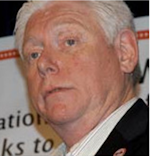
Burton Clark
Dr. Burton A. Clark, EFO, has been in the fire service for 50 years, including the District of Columbia in Washington, DC, Prince George's County Fire Department in Maryland and the National Fire Academy. He served as assistant fire chief in Laurel, MD, as an operations section chief at DHS/FEMA during national emergencies and disasters and as a Visiting Scholar at Johns Hopkins University. Clark presently serves on the Board of Advisors for the Fire Service Psychology Association and the Board of Governors for the John M. Moschella Fire Service Research Grant Trust. He is a technical expert reviewer for the National Institute for Occupational Safety and Health's Fire Fighter Fatality Investigation and Prevention program and a doctoral dissertation advisor at various universities. Clark is the author of "I can't Save You, But I'll Die Trying: The American Fire Culture." His webpage is americanfireculture.com. Clark was inducted into the National Fire Heritage Center's Hall of Legends, Legacies and Leaders. Clark can be reached at [email protected].
